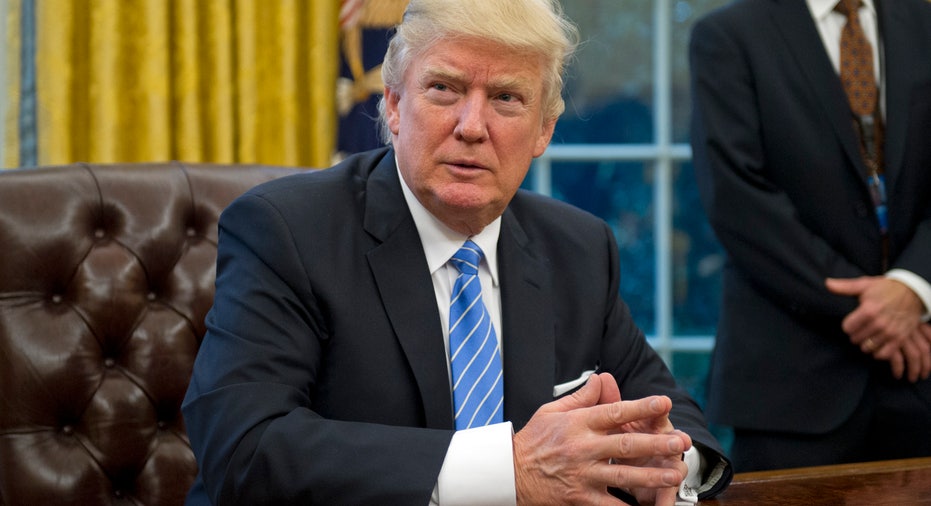Tax Reform by Year End will be 'Challenging,' Goldman Warns

Tax reform, a highly-anticipated pillar of President Donald Trump’s policy agenda, will be “challenging” to accomplish before the end of the year, Goldman Sachs (NYSE:GS) said Wednesday morning, delivering the latest blow to the post-election “Trump trade” that has powered Wall Street higher since November.
Because tax reform is “not much further along than where it was a few months ago,” rather than a complete overhaul of the tax code, Alec Phillips, Goldman’s Washington political economist, said tax reform will look more like a tax cut with “limited elements of reform.” He expects legislation to include a 25% tax rate on profits U.S. corporations want to repatriate, but no border adjusted tax (BAT).
The biggest hurdle to getting some kind of tax legislation to Congress this year is the president’s insistence that a revamp of former President Barack Obama’s hallmark Affordable Care Act be completed first, Phillips said. Trump’s first stab at pushing health reform legislation through Congress failed earlier this year when House Speaker Paul Ryan had to pull the proposal from a vote in the House due to lack of GOP support.
“If the legislative focus remains on health legislation through May, a vote on tax reform at the committee level might not occur in the House until July, which could make final enactment on tax legislation before year-end challenging,” Phillips said. “At this point, we expect that enactment is more likely in Q1 2018 than Q4 2017.”
That assessment comes on the heels of last week’s remarks from Treasury Secretary Steven Mnuchin, who in an interview with the Financial Times, said Trump’s tax-reform timetable is ambitious and getting reforms through Congress and onto his desk by August was “highly aggressive to not realistic at this point.” Still, he said he said he expects some kind of reform by the end of the year.
To that end, House Ways and Means Committee Chairman, Republican Kevin Brady, told FOX’s Neil Cavuto on Tuesday his committee will announce congressional hearings on its tax-reform blueprint next week. He insisted that the year – not the month” – in which reform is passed matters most, and remarked that both corporate and individual reforms should happen simultaneously, rather than putting corporate tax cuts ahead of individual rates.
The downbeat outlook for tax reform has added to a more pessimistic tone on Wall Street since that effort – alongside expectations for more spending on infrastructure improvements and a reduction in business regulation – helped send stocks higher after Trump’s election. The timing of fiscal policy promises matters since vows of lower taxes and less regulation help support the outlook for corporate profits and economic growth, said Barclays equity strategists.
“Fiscal policy is a potential multiplier on the upside and downside. Our baseline is that a tax proposal is not passed this year, but a plan will be floated for the market to evaluate…a tax proposal in the fall would likely help to keep corporate and consumer sentiment elevated, with a passage of a plan next year leading to an acceleration in nominal growth,” they said.



















